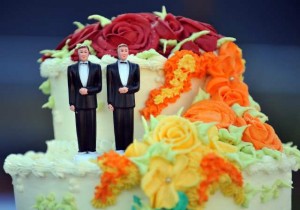 [1]Homosexual activists and UN officials gathered to take stock of their failures at the United Nations on Wednesday.
[1]Homosexual activists and UN officials gathered to take stock of their failures at the United Nations on Wednesday.
Panelists from UN agencies and homosexual groups spoke of the obstacles to getting homosexuality recognized despite a big push for social inclusion in UN policy. The event “LGBT Rights and the UN: When Will the Love Story Begin?” was hosted by youth delegates at the German mission to the UN.
“I’m not sure love is the right word,” said Susanna Fried of the UN Development Program. Fried said addressing homosexuality within development assistance is easier because it does not rely on UN negotiations but evidence.
“Evidence is very political,” she said. States have to confront the soaring rates of HIV among homosexuals in both developed and developing countries. Fried had a hand in a report from the Global Commission on HIV and the Law [2] that recommended decriminalizing sex work and lowering the age of consent to tackle HIV/AIDS. Lowering the legal age of consent is critical to access reproductive health commodities, she claimed.
“The Love story cannot begin until we move beyond the right not to be beaten up,” said Marianne Moltmann of the Human Rights Campaign. Activists like Moltmann want homosexuality approved and endorsed officially by the United Nations, not just tolerated.
“There is discomfort with children’s sexuality,” Moltmann said, which limits a franker conversation on sexuality and gender identity. While international law recognizes parental rights to guide the education and religious instruction of children, she asserted this should not take precedence over the best interest of the child.
Russia’s laws to protect children from early sexualization and the health risks it entails were characterized as “cynical” and a symptom of “deep homophobia” by Graeme Reid of Human Rights Watch, who described himself as both an academic and an activist.
Defining sexual orientation and gender identity is a problem, panelists conceded. Should they focus on social inclusion, or legal rights? A broader narrative of social inclusion is in tension with attempts to establish legal categories for homosexuals according to Kendall Thomas of Columbia University Law School, who moderated the panel.
Aditya Shankar, a “queer rights” advocate from India said categories like LGBT (lesbian, gay, bisexual, transgender) are often inadequate because “fluidity is innate to human nature.” For the queer community to be boxed up in one category is ironic because the “whole point is to be counter-normative.”
Shankar blamed the lack of social inclusion in India on the “hetero-normative discourse” in the media. This was not always the case, he claimed, pointing to ancient temples with images of homosexuality, and homosexual passages in the Kama Sutra.
In the end, panelists agreed with Reid that laws and categories are “blunt instruments” but ones they want.
Only one third, 68 countries, of the UN General Assembly has publically endorsed a homosexual agenda. The last action at the Human Rights Council in Geneva was in 2011 when a report from the secretariat was issued amid controversy.
Activists have bypassed UN member states to get homosexuality recognized, relying on the UN bureaucracy led by Secretary General Ban Ki-moon to issue personal opinions in their favor.